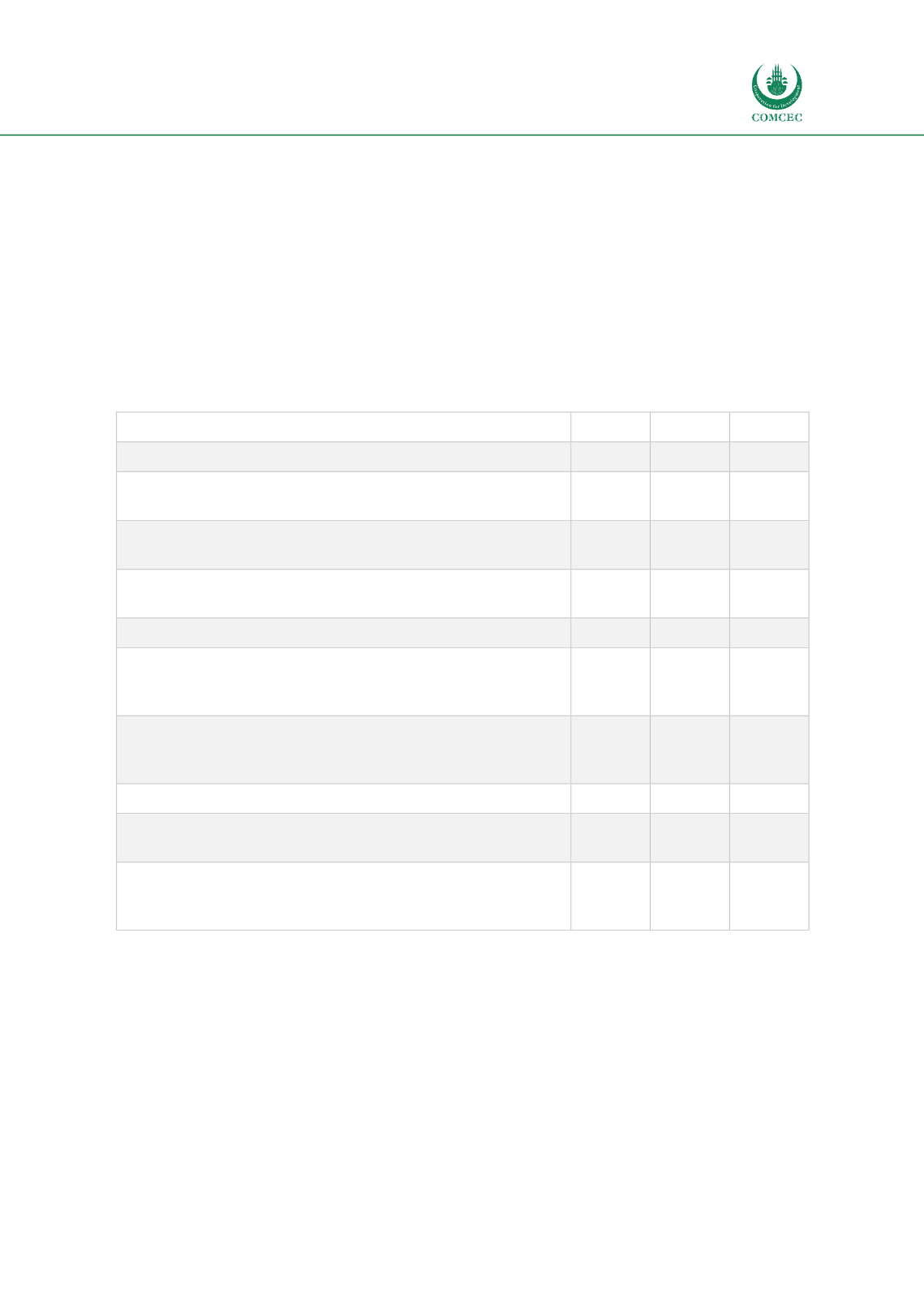

Improving Customs Transit Systems
In the Islamic Countries
109
assessing and applying the penalty, while 88.9% of the countries provide such an explanation to
the person, upon whom the penalty is imposed, specifying the nature of the breach and the
applicable regulation. Also, 24.4% of the countries use remuneration of customs officials based
on a fixed portion or percentage of any penalties or duties that they assess or collect, while in
75.6% of the countries the remuneration of customs officials is independent of any penalties or
duties that they assess or collect. More than half of the countries are not considering a mitigating
factor when establishing penalties for voluntary disclosure of the breach of customs regulation,
by the person responsible, prior to the discovery of the breach by the customs administration.
Table 39: TFI related to the fees and charges
Response
0
1
2
Information published on fees and charges
28.90%
48.90%
22.20%
Fees for answering inquiries and providing required forms
and documents
4.50%
33.30%
63.20%
Fees and charges periodically reviewed to ensure they are still
appropriate and relevant
60.00%
22.20%
17.80%
An adequate time period granted between the publication of
new or amended fees and charges and their entry into force
40.00%
33.30%
26.70%
Fees for Customs services during normal working hours
31.10%
68.90%
Implementation of penalty disciplines for the breach of
customs laws, regulations or procedural requirements -
transparency
17.80%
57.80%
24.40%
Implementation of penalty disciplines for the breach of
customs laws, regulations or procedural requirements -
proportionality
35.60%
64.40%
Procedural guarantees on penalties
11.10%
88.90%
Conflicts of interest in the assessment and collection of
penalties and duties
24.40%
75.60%
Is voluntary disclosure of the breach of customs regulation by
the person responsible for a mitigating factor when
establishing penalties
55.60%
44.40%
Source: WTO TFA indicators database
3.2.5.4
Formalities - Documents
88.9% of the OIC MS
(Table 40)accept copies of supporting documents required for import,
export and transit formalities with exceptions (related to the type of good, the circumstances or
the agency), but they are not accepted without exceptions, and original to be presented upon
request (2.2%). Also, 86.7% of the countries accept copies of supporting documents where
another government agency holds the original of the document. When it comes to compliance
















